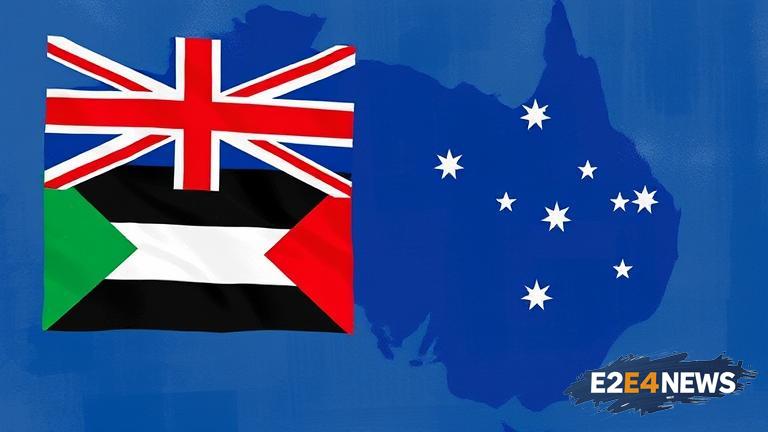The Australian government has made a significant move towards recognizing Palestine as a sovereign state, in a shift that reflects growing international pressure to address the long-standing Israeli-Palestinian conflict. This development comes as the United Nations and other global bodies continue to advocate for a two-state solution, with Palestine and Israel coexisting peacefully. The Australian government’s stance is seen as a crucial step towards achieving this goal. The move is also expected to have significant implications for Australia’s relationships with other countries in the region, particularly Israel. The Israeli government has long been opposed to Palestinian recognition, and this development is likely to strain relations between the two nations. However, the Australian government has made it clear that it is committed to finding a peaceful resolution to the conflict. The decision to recognize Palestine is also seen as a response to the growing humanitarian crisis in the Gaza Strip, where thousands of Palestinians are living in poverty and without access to basic necessities like food and water. The Australian government has pledged to increase its aid to the region, in an effort to alleviate the suffering of the Palestinian people. The recognition of Palestine is also expected to have significant economic implications, with the potential for increased trade and investment between Australia and the Palestinian territories. However, the path to recognition is not without its challenges, and the Australian government will need to navigate complex diplomatic channels to achieve its goal. The government has stated that it will work closely with other countries, including the United States and the European Union, to achieve a peaceful resolution to the conflict. The recognition of Palestine is also seen as a key step towards promoting stability and security in the region, and reducing the risk of further conflict. The Australian government’s decision has been welcomed by Palestinian leaders, who see it as a major breakthrough in their quest for statehood. However, the Israeli government has expressed strong opposition to the move, and has warned that it will have significant consequences for the region. Despite these challenges, the Australian government remains committed to finding a peaceful resolution to the conflict, and is working tirelessly to promote dialogue and understanding between the two sides. The recognition of Palestine is also expected to have significant implications for the global community, with the potential to promote greater understanding and cooperation between nations. The Australian government’s decision is seen as a major step forward in the pursuit of peace and stability in the Middle East, and is expected to have far-reaching consequences for the region and beyond. The government has stated that it will continue to work closely with other countries to promote a peaceful resolution to the conflict, and to support the Palestinian people in their quest for statehood. The recognition of Palestine is also seen as a key step towards promoting human rights and dignity in the region, and reducing the risk of further conflict. The Australian government’s decision has been welcomed by human rights groups, who see it as a major breakthrough in the pursuit of justice and equality. However, the path to recognition is not without its challenges, and the Australian government will need to navigate complex diplomatic channels to achieve its goal. The government has stated that it will work closely with other countries, including the United States and the European Union, to achieve a peaceful resolution to the conflict. The recognition of Palestine is also expected to have significant implications for the global community, with the potential to promote greater understanding and cooperation between nations.





